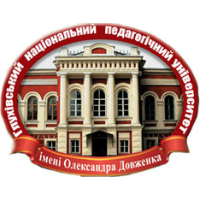Languages
BONDARETS M. V. Definition variability of the category «civilization» in materialistic approach of historical research
It was found out that the formation of the civilization theory and definition of the category «civilization» took place within the framework of the development of two parallel directions of the Western public opinion and science: materialistic and cultural-historical.
It was proved that further development of the cultural-materialist direction was associated with the definition of civilization as a product of a higher development of the «natural» society and its productive forces. In this approach, the criterion for the development of civilization is, above all, the material culture. It was shown that the adherents of this trend investigated the civilization of the European countries in the seventeenth and nineteenth centuries through the development of productive forces and social structure, pushing the culture and political structure of society at the background. This allowed the researchers to get closer the disclosure of the laws of the successful development of industrial society in the Western Europe in this period.
The peculiarities of the theoretical approaches of the main representatives of the materialist direction in the determining of the civilization are determined. Among them are: the stadia of the development of mankind of A. Furguson, the evolutionism of L. Morgan, the theory of the transition to a class society of K. Marx and F. Engels, the Neolithic and Urbanist Revolution of G. Child and R. Renfild, the concept of ideal types of M. Weber, autarky of the great spaces of F. Braudel, world-system analysis of I. Wallerstein, Urbanist approach of D. Wilkinson.
It has been proved that the adherents of the materialist direction did not completely ignore the role of spiritual factors, but they were associated with the type of technology or sociality. Generally, the features of civilization, distinguished by representatives of the concept of cultural materialism, include: the development of agriculture and crafts, trade, construction, the presence of cities, state institutions, class society, private property, money, a high level of religiosity and writing.
It is concluded that the development of civilization theory moved from the simple ways of explaining civilizational phenomena to the attempts to explain its deep features. If at the first stage of research took place the formation of ontological models of the «barbarism-civilization» type, on the second one prevailed a multifactorial analysis of the category «civilization», on the third stage, which encompasses the present time, the theory of civilizations becomes one of the main tools of historical research.
Key words: materialistic approach, civilization, evolution, development by stages, typology.
- 795 reads





